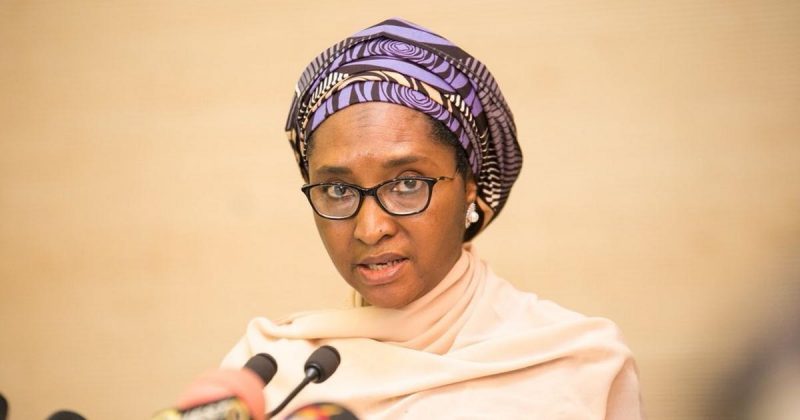20 civil society organizations under the aegis of Open Alliance, have described plans by the federal government to take an $800m loan from the World Bank to share to vulnerable Nigerians as unhealthy to the country’s financial health.
In a statement dated April 17, and signed by the 20 organizations including, Paradigm Leadership Support Initiative, Accountability Lab Nigeria, Budget Transparency and Accountability Initiative Nigeria, among others, the group said that the $800m World Bank loan which was approved on December 16, 2021, will be distributed through cash transfers to 50m Nigerians in 10m households captured in the National Social Register or NSR,
The Alliance which works around open governance and accountability, expressed concerns that previous loans collected for the same purpose have not yielded much result and feared that this will also go the same road.
“Open Alliance is taken aback by the announcement of an $800m World Bank loan to be distributed through cash transfers to 50m Nigerians in 10m households captured in the National Social Register or NSR.
“Available documents on the World Bank website reveal that the Bank approved the loan on December 16, 2021, more than six months before the Nigerian government had announced a terminal date for the petrol subsidy regime,” it added
Open Alliance also noted that the financing agreement of the loan was signed on August 16, 2022, with a repayment schedule commencing in 2027 and ending in 2051.
Quoting Section 41 of Nigeria’s Fiscal Responsibility Act, the group decried government’s incessant borrowing for consumption which has continued to throw the country into multidimensional poverty.
“In 2017, Nigeria acquired a $500m loan from the World Bank to provide access to targeted transfers to poor and vulnerable households under an expanded national social safety nets system.
“Section 41 of Nigeria’s Fiscal Responsibility Act mandates the government at all levels to only borrow for capital projects and human capital development. Furthermore, Nigeria’s National Cash Transfer Program was established to improve the consumption levels of poor households, reduce poverty, prevent vulnerable households from becoming poorer, increase school enrolment, and improve child nutrition. Nigeria’s situation has worsened across several development indicators despite the funds deployed. While 133m Nigerians were adjudged to have been multidimensionally poor in 2022.
“Considering the devaluation risk of such an endeavor, we are shocked that the Federal Government would take a foreign debt to distribute “palliatives” to Nigerians. Why would Nigeria borrow in foreign currency for consumption purposes? Did we learn lessons from the foreign debt crisis settled in 2005, which provided significant ease to Nigeria’s macroeconomic environment?” it asked rhetorically.
Meanwhile, the loan implementation and results report shows that $747m out of the $800m will be disbursed through economic shock responsive and extended regular cash transfer, while $53m will be spent on project management and system strengthening.
The statement further highlighted government’s failures in handling poverty in the past; “It’s important to note that in 2016, the government budgeted a sum of N500bn to be distributed to the vulnerable and poor under the Social Investment Program. The results, as seen between 2018 and 2019, show the level of poverty rose from 39.1% in 2018 to 40.1% in 2019 and 63% in 2022.”
Considering Nigeria’s debt pool the organizations said it is crucial to evaluate the justification, appropriateness, and effectiveness of such multilateral loans and their implication for the fiscal sustainability of the country that is neck-deep in a fiscal crisis.
The Alliance also demanded transparency, adequate monitoring and evaluation framework in place for the cash transfer program, with the beneficiaries made public on the National Social Register.
Considering the magnitude of expenditure inefficiency and the amount of waste in the budget, social protection programs like the National Social Safety Nets Program should rather be funded with savings from blocking revenue leakages, eliminating waste, and ending inefficient subsidies like the petrol subsidy.
They also admonish the World Bank to live up to its name by lending responsibly to already impoverished, fiscally challenged countries like Nigeria, while involving citizens and other accountability actors in their decision-making process. Anything short of this will further impoverish Nigeria and provide the enabling environment for state capture.
The statement also encouraged the government to cut its appetite for borrowing, especially for consumption, as 96% of Nigeria’s revenue is already used to service debts.
A group of 20 civil society organizations under the Open Alliance has criticized the Nigerian federal government's plan to take an $800 million loan from the World Bank to distribute to vulnerable Nigerians. The loan, approved in December 2021, is intended for cash transfers to 50 million Nigerians in 10 million households via the National Social Register. The Open Alliance, which focuses on open governance and accountability, is concerned that past similar loans have not been effective in reducing poverty and fear this loan will have the same outcome.
They questioned the rationale of borrowing in foreign currency for consumption purposes, noting that a previous $500 million loan in 2017 did not significantly impact poverty reduction. The loan repayment is set to start in 2027 and conclude in 2051. The organizations cited the Fiscal Responsibility Act, which mandates that government borrowing should be for capital projects and human capital development, not consumption.
The group also highlighted the inefficacy of the Social Investment Program, which saw an increase in poverty levels despite significant funds. They call for better justification, transparency, and monitoring of such loans, suggesting that social safety nets should be funded through revenue savings and the elimination of wasteful expenditures rather than new loans.
The organizations urged the Nigerian government to reduce its borrowing appetite, particularly for consumption, and warned that continued irresponsible lending could exacerbate Nigeria's fiscal challenges. They also emphasized the need for the World Bank to lend responsibly and involve citizens and accountability actors in their decision-making processes.






